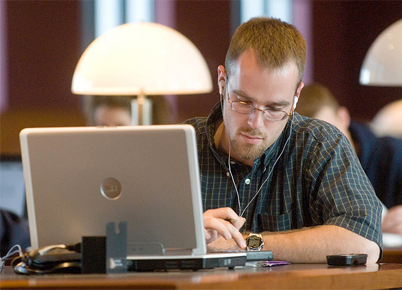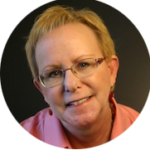The Online Learning Consortium (OLC) is reaching out to our global community of thought leaders, faculty, innovators, and practitioners to bring you insights from the field of online, blended, and digital learning. This week, Karen Gardner-Athey, OLC Institute faculty for the Implementing Open Educational Resources, Part 2 workshop, joins us to discuss the future of open educational resources (OER) in higher education.

OLC: How do you define innovation?
To me, innovation is about doing things differently, better, new methods for doing tasks, new ways of thinking about how we have been going about our daily lives.
OLC: There are many opportunities to teach online. Why did you choose OLC and which Institute course(s) do you teach for OLC?
I chose to teach with OLC after SUNY (State University of New York) and OLC formed a partnership. This partnership has allowed me to expand my online teaching skills, as well as participate in opportunities for professional growth. I teach the Exploring Open Educational Resources, Part 1 workshop, and will be teaching the Implementing Open Educational Resources, Part 2 workshop in August.
OLC: What is on the horizon for open educational resources in higher education? Where do you see OER in 3-5 years?
I think that we will see that OER textbooks and open courses will become the norm in higher education in the next 3-5 years. With the expansion and acceptance of OER will come more standards and best practices for implementing and executing OER in the physical classroom as well as in online courses and degrees.
OLC: What challenges do you continue to see in relation to OER? What solutions do you propose?
There will continue to be a “push/pull” with some publishers and some bookstores, although I think that agreements and accommodations will be reached as well new, and as yet, unforeseen opportunities found. I think that these opportunities will present themselves in a manner that will be advantageous to all involved. I do not know what they will be, but I am pretty sure that opportunities can be found, if all are willing to explore new ideas and innovations.
OLC: What are the 3 most important things prospective participants should know about the course you teach?
The 3 most important things that prospective participants should know about “Exploring Open Educational Resources (Part 1)“:
1. OER are about student success;
2. OER are evolving and becoming a standard on college campuses across the country (and the world);
3. This is an exciting time in OER and we should all be on board and excited about it.
Three important things for prospective participants to know about “Implementing Open Educational Resources (Part 2)” are:
1. This course will discuss a variety of topics that need to be considered when first implementing OER at your institution;
2. Team effort should/must be involved with implementation;
3. We are all pioneers in the world of OER, but there is a lot support and help available from those who have gone before us.
OLC: What do you believe are the top 3 ways in which professionals in our field can stay current and move ahead?
In my opinion, the most important ways that professionals in our field can stay current and move ahead are:
1. Participate in ongoing educational opportunities.
2. Participate in professional groups that offer educational and networking opportunities.
3. Read professional journals.
OLC: What was the last book, journal or article you read that relates to the field?
The last article I read was “A National Study of Training Content and Activities for Faculty Development for Online Teaching” by Dr. Katrina Meyer and Dr. Vicki S. Murrell; Journal of Asynchronous Learning Networks, Vol 18, No.1 (2014).
OLC: How can people connect with you?
I can be contacted at: karen.gardner-athey@suny.edu.
About Karen Gardner-Athey

Karen is the Professional Development Training Facilitator for Library Systems and Open Educational Resources (OER) at the SUNY Office of Library and Information Services (OLIS). She received her Master of Library and Information Science from UCLA and a Master of Science in Information Resource Management from the School of Information Studies at Syracuse University. She also earned a Certificate of Advanced Studies in Training the Trainer from the Education Department at Elmira College. Throughout her career she has held a variety of professional positions in library settings as well as private industry. For the past 16 years, her primary focus at OLIS has been library systems training and support. She also has expertise in the curation, cataloging, and pedagogical uses of OER, as well as providing support for the SUNY Digital Repository (DSpace), a system-wide, shared digital repository. Since 2015, she has been teaching online OER courses offered through SUNY COTE (Community of Online Teaching Excellence). Karen loves to knit, teaching knitting courses, and she has more yarn than she can possibly use in this lifetime. Karen and her husband have 2 beloved beagles who own the household.

